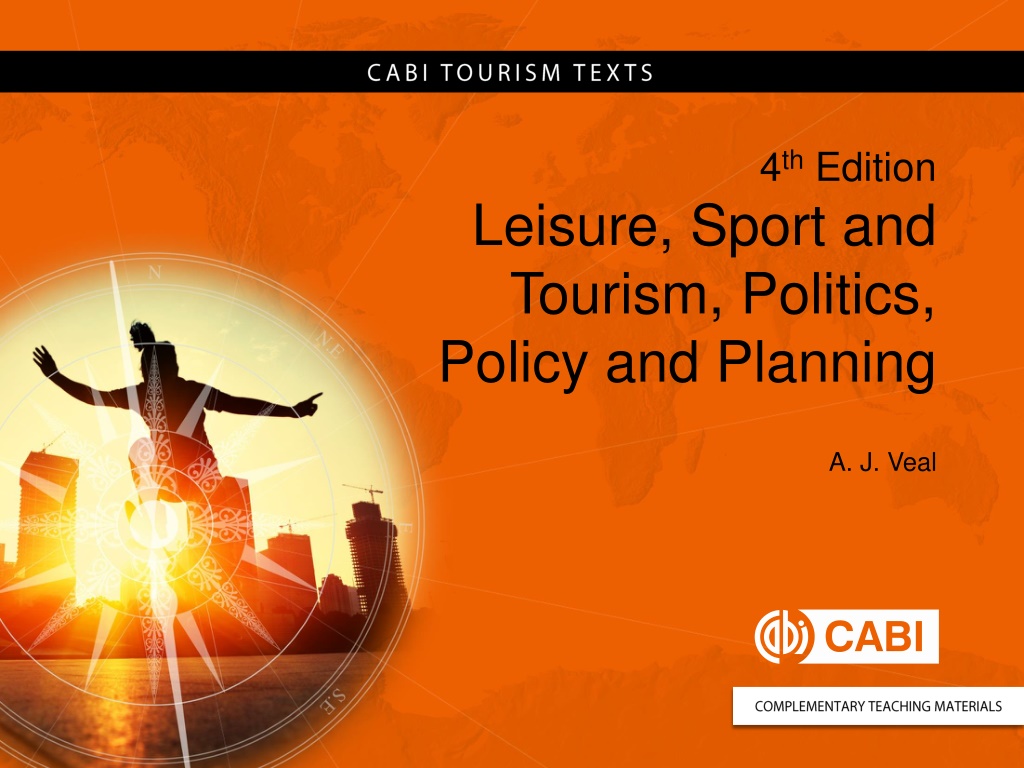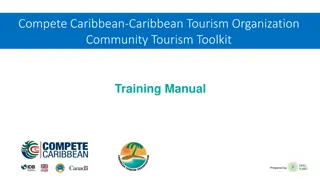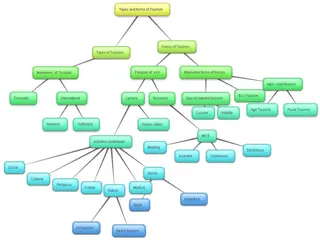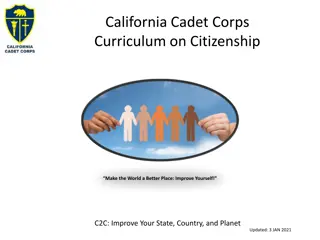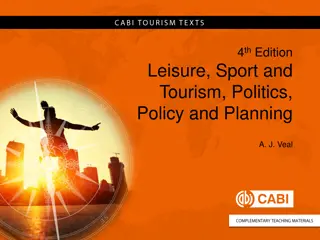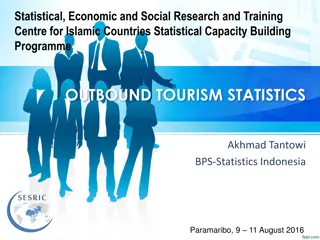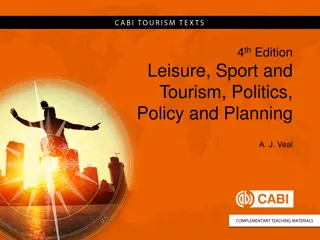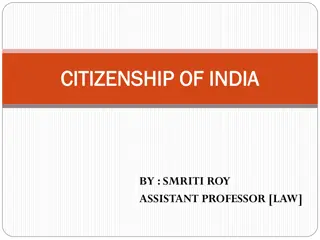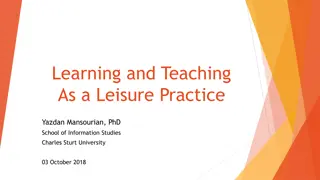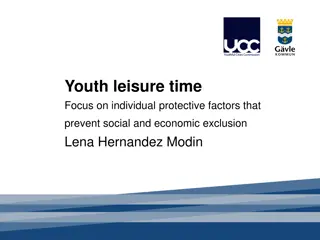Human Rights and Citizenship Rights in Leisure, Sport, and Tourism: A Historical Perspective
This text delves into the intersection of human rights, citizenship rights, and leisure activities like sports and tourism. It explores the definitions, history, and declarations related to human rights, emphasizing the importance of allowing individuals the freedom to pursue leisure activities without interference. The content highlights key aspects such as women's rights, children's rights, disability rights, and ethnic group rights in the context of leisure, sport, and tourism. It also touches upon future considerations like animal rights and the rights of future generations.
Uploaded on Sep 14, 2024 | 0 Views
Download Presentation

Please find below an Image/Link to download the presentation.
The content on the website is provided AS IS for your information and personal use only. It may not be sold, licensed, or shared on other websites without obtaining consent from the author. Download presentation by click this link. If you encounter any issues during the download, it is possible that the publisher has removed the file from their server.
E N D
Presentation Transcript
4th Edition Leisure, Sport and Tourism, Politics, Policy and Planning A. J. Veal
CHAPTER 4 Human Rights and Citizenship Rights Leisure, Sport and Tourism, Politics, Policy and Planning, 4th edition, Veal, 2017, CABI Tourism Texts
Outline Introduction Definitions History Human rights declarations Artistic/cultural Leisure Sport Tourism/travel LST and cultural rights Women Children Disabled Ethnic/indigenous Group rights Moral concerns Taxation Freedom Sovereignty Meaningfulness Animal rights Future generations Other rights Measurement The rights of the citizen Leisure, Sport and Tourism, Politics, Policy and Planning, 4th edition, Veal, 2017, CABI Tourism Texts
Definitions A right is a justifiable claim, on legal or moral grounds, to have or obtain something, or to act in a certain way (SOED) Human rights: those rights which all human beings are entitled to on the basis of their humanity alone (Donnelly, 1989: 12) Leisure, Sport and Tourism, Politics, Policy and Planning, 4th edition, Veal, 2017, CABI Tourism Texts
History: Elizabeth I In 1585, the Queen quashed a Puritan Bill aimed at banning all sports and entertainments on Sundays. The Queen felt that her people had a right to spend their only day of rest enjoying themselves as they pleased, without interference from killjoys (Alison Weir, emphasis added) Leisure, Sport and Tourism, Politics, Policy and Planning, 4th edition, Veal, 2017, CABI Tourism Texts
See full size image Leisure declarations - 1 We hold these truths to be self-evident: that all men are created equal; that they are endowed by their Creator with certain inalienable rights; that among these are life, liberty and the pursuit of happiness. (American Declaration of Independence, 1776) Leisure, Sport and Tourism, Politics, Policy and Planning, 4th edition, Veal, 2017, CABI Tourism Texts
Leisure declarations - 2 United Nations: Universal Declaration of Human Rights, 1948 Article 24:Everyone has the right to rest and leisure, including reasonable limitation of working hours and periodic holidays with pay. Article 27: Everyone has the right freely to participate in the cultural life of the community, to enjoy the arts and to share in scientific advancement and its benefits. Leisure, Sport and Tourism, Politics, Policy and Planning, 4th edition, Veal, 2017, CABI Tourism Texts
Leisure declarations - 3 UN International Covenant on Economic, Social and Cultural Rights (ICESCR), 1966, Article 7 affirms: ... the right of everyone to the enjoyment of just and favourable conditions of work , including the right to: Rest, leisure, reasonable limitation of working hours and periodic holidays with pay, as well as remuneration for public holidays. ICESCR is the legal document implementing UDHR ESC rights, with periodic national reporting on progress to UN. Leisure, Sport and Tourism, Politics, Policy and Planning, 4th edition, Veal, 2017, CABI Tourism Texts
Leisure declarations - 5 All people have a basic human right to leisure activities that are in harmony with the norms and social values of their compatriots. All governments are obliged to recognize and protect this right of its citizens. World Leisure Organization: Charter for Leisure 1970/1981/2000 Leisure, Sport and Tourism, Politics, Policy and Planning, 4th edition, Veal, 2017, CABI Tourism Texts
Sport declarations - 1 The Olympic Charter IOC, 2010 edn The practice of sport is a human right. Every individual must have the possibility of practising sport without discrimination of any kind and in the Olympic spirit, which requires mutual understanding with a spirit of friendship, solidarity and fair play. 1978: UNESCO International Charter of Physical Education and Sport Article 1: The practice of physical education and sport is a fundamental right for all. Leisure, Sport and Tourism, Politics, Policy and Planning, 4th edition, Veal, 2017, CABI Tourism Texts
Sport declarations - 2 1976: European Sport for All Charter Article I: Every individual shall have the right to participate in sport. 1992: European Sports Charter Governments shall take the steps necessary to apply the provisions of this Charter ... in order to enable every individual to participate in sport Leisure, Sport and Tourism, Politics, Policy and Planning, 4th edition, Veal, 2017, CABI Tourism Texts
Travel/tourism declarations Universal Declaration of Human Rights, Article 13 Everyone has the right to leave any country, including his own, and to return to his country. 1998: Global Code of Ethics for Tourism (UN World Tourism Organization) Article 7:Right to tourism Article 8:Liberty of tourist movements Article 9:Rights of the workers and entrepreneurs in the tourism industry Leisure, Sport and Tourism, Politics, Policy and Planning, 4th edition, Veal, 2017, CABI Tourism Texts
Group rights 1975: Declaration on the Rights of Disabled Persons 1979: Convention on the Elimination of All Forms of Discrimination against Women 1989: Convention on the Rights of the Child 1989: Convention Concerning Indigenous and Tribal Peoples in Independent Countries 1999: Declaration on the Rights of Persons Belonging to National or Ethnic, Religious or Linguistic Minorities Leisure, Sport and Tourism, Politics, Policy and Planning, 4th edition, Veal, 2017, CABI Tourism Texts
David Harvey Economic rights versus political/civil rights hardly any attention has been paid to their [economic rights] implementation almost all signatories to the Universal Declaration are in gross violation of these articles. Strict enforcement would entail massive revolutionary transformations in the political- economy of capitalism. Neoliberalism [is] a gross violation of human rights. (Harvey, 2000: 89 90) Leisure, Sport and Tourism, Politics, Policy and Planning, 4th edition, Veal, 2017, CABI Tourism Texts
Meaningfulness: issues in implementation Rights and freedoms some people s rights may limit others freedoms Taxation securing some rights costs money Morals some rights involve contested moral values National sovereignty international upholding of rights may limit national sovereignty Leisure, Sport and Tourism, Politics, Policy and Planning, 4th edition, Veal, 2017, CABI Tourism Texts
Other rights Future generations e.g. environmental sustainability Animal rights e.g. prevention of cruelty e.g. hunting in the UK Leisure, Sport and Tourism, Politics, Policy and Planning, 4th edition, Veal, 2017, CABI Tourism Texts
Measurement Various indexes measure national progress in human rights, e.g. Social & Economic Rights Fulfilment (SERF) Index LST is generally neglected Leisure, Sport and Tourism, Politics, Policy and Planning, 4th edition, Veal, 2017, CABI Tourism Texts
Citizenship rights a bundle of entitlements and obligations which constitute individuals as fully fledged members of a socio-political community, providing them with access to scarce resources. (Turner, 1994: xv) Civil: liberty, freedom of speech, religion, owning property , right to justice etc. Political: right to vote etc. Social: economic welfare, services, including leisure services Leisure, Sport and Tourism, Politics, Policy and Planning, 4th edition, Veal, 2017, CABI Tourism Texts
Obligations of the citizen Examples: observe the law pay taxes serve on juries bear arms to defend the state, if called upon take part in the democratic process by voting (compulsory in Australia) actively seek work, if drawing unemployment benefit See UK Citizen s Charter (Conservative Government 1991) A feature of the Third Way (UK: 1997 ) Leisure, Sport and Tourism, Politics, Policy and Planning, 4th edition, Veal, 2017, CABI Tourism Texts
More details/reading Relationship with: leisure: Veal (2015) sport: Donnelly (2008); Giulianotti & McArdle (2006) tourism: Lovelock & Lovelock (2013) Leisure, Sport and Tourism, Politics, Policy and Planning, 4th edition, Veal, 2017, CABI Tourism Texts
